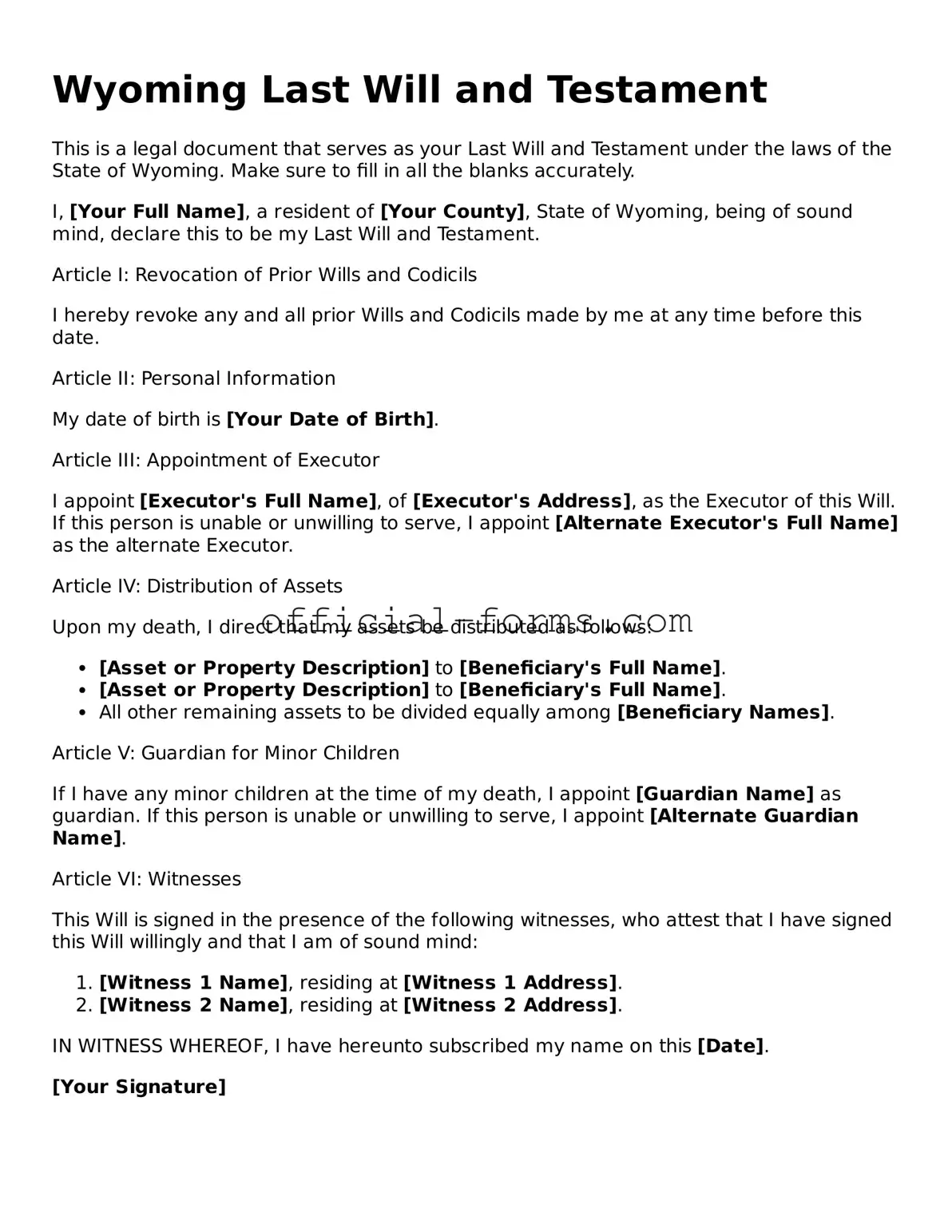Filling out a Last Will and Testament form in Wyoming can be straightforward, but many people make common mistakes that can lead to confusion or even legal issues. One frequent error is not signing the document properly. In Wyoming, a will must be signed by the testator, which is the person making the will. If the signature is missing or does not match the person's legal name, it may not be considered valid.
Another mistake is failing to date the will. A will should always include the date it was signed. Without this, it can be challenging to determine which version of the will is the most current, especially if multiple wills exist. This could lead to disputes among heirs.
People often overlook the importance of witnesses. In Wyoming, two witnesses must sign the will for it to be valid. If there are no witnesses, or if the witnesses are not present at the same time, the will may not hold up in court.
Some individuals forget to include specific bequests. It’s essential to clearly state who gets what. Without clear instructions, loved ones may be left guessing about your intentions, which can lead to family disagreements.
Another common error is not being clear about the executor. The executor is the person responsible for carrying out the wishes outlined in the will. If you fail to name an executor or choose someone who is unwilling or unable to serve, it can complicate the process of settling your estate.
Many people also neglect to update their wills after major life events. Changes such as marriage, divorce, or the birth of a child can impact your wishes. Failing to update your will can result in outdated information that does not reflect your current intentions.
Some individuals do not consider the implications of joint ownership. While joint ownership can simplify the transfer of property, it can also create complications if not properly addressed in the will. It’s important to understand how this affects your estate and to plan accordingly.
Additionally, people sometimes use vague language in their wills. Ambiguities can lead to misunderstandings and disputes among heirs. Clear and specific language helps ensure that your wishes are followed as intended.
Lastly, many forget to store their will in a safe yet accessible place. A will that cannot be found when needed is as good as not having one at all. It’s crucial to inform your loved ones about where the will is kept to ensure it can be located easily after your passing.

